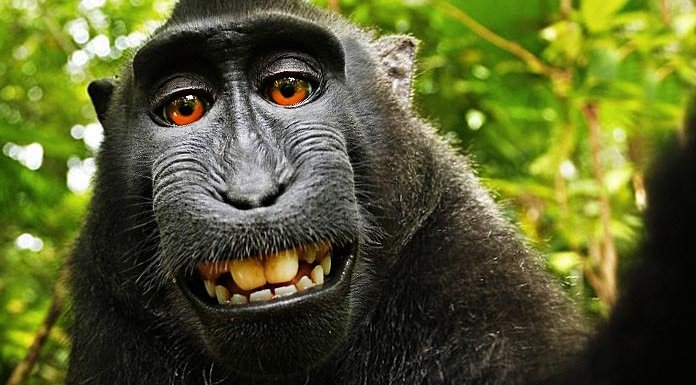3 Count: Primate Settlement
The monkey is out...
 Have any suggestions for the 3 Count? Let me know via Twitter @plagiarismtoday.
Have any suggestions for the 3 Count? Let me know via Twitter @plagiarismtoday.
1: PETA Drops Lawsuit Demanding Animals the Right to Own Property
First off today, David Kravets at Ars Technica reports that, much to the chagrin of punsters everywhere, the monkey selfie lawsuit has been settled as PETA has reached an agreement with the photographer.
The case began when an Indonesian macaque monkey named Naruto swiped the camera from photographer David Slater and used it to take a now-famous selfie. As Slater tried to license the photo, others claimed that the photo was in the public domain. However, PETA sued Slater with the argument that Naruto owned the photo and should receive royalties from it.
The courts consistently ruled against this argument, deciding that animals do not have standing to hold copyright, but the case was awaiting a ruling from the Appeals Court. The two sides have now settled with Slater agreeing to donate 25% of the royalties from the image to Naruto’s habitat. How much that is worth is dubious as most believe that the image is in the public domain, with no license or royalty fees necessary to use the image.
2: York University Loses Licensing Case Against Access Copyright, Plans to Appeal
Next up today, Josie Kao at The Varsity reports that, in Canada, a court ruling against York University could set a precedent that hurts the University of Toronto in their case against Access Copyright.
York University, much like University of Toronto, was sued by Access Copyright over its refusal to pay a copyright tariff on books and other works used at the school, opting to rely on its own copyright policy. The school argued that the use should be permitted since it was in the name of education, thus making it fair dealing. Access Copyright, which is a nonprofit that collects royalties for publishers and authors, argued that the use was still an infringement.
The court sided with Access Copyright and, setting a precedent that could impact the University of Toronto case. However, York is appealing the ruling and University of Toronto is arguing that it’s copyright policy was different than York’s.
3: Judge Explains KinderGuides Copyright Case Decision
Finally today, Andrew Albanese at Publishers Weekly reports that the judge has issued a written opinion in the Kinderguides case, explaining an earlier oral decision on why the books were not a fair use.
The case, filed back in Janurary, pits multiple publishers and authors’ estates against Moppet Books. Moppet had released a series of books in its Kinderguides series, which took traditional novels and made them into kid-friendly books. In July both sides had oral arguments in the case with Moppet arguing that the books were a fair use. However, in a surprise decision, the judge issued an oral verdict saying that the books were not a fair use and issuing a permanent injunction against their sale.
In his written decision, the judge highlights the “undisputed” market for kid-friendly versions of mainstream books and says the Kindgerguides were simply unauthorized derivatives, not offering an commentary or criticism of the original works. A trial is scheduled for October 2 to determine whether or not Moppet is liable for willful infringement. Moppet has already promised to appeal.
Suggestions
That’s it for the three count today. We will be back tomorrow with three more copyright links. If you have a link that you want to suggest a link for the column or have any proposals to make it better. Feel free to leave a comment or send me an email. I hope to hear from you.
The 3 Count Logo was created by Justin Goff and is licensed under a Creative Commons Attribution License.
Want to Reuse or Republish this Content?
If you want to feature this article in your site, classroom or elsewhere, just let us know! We usually grant permission within 24 hours.
